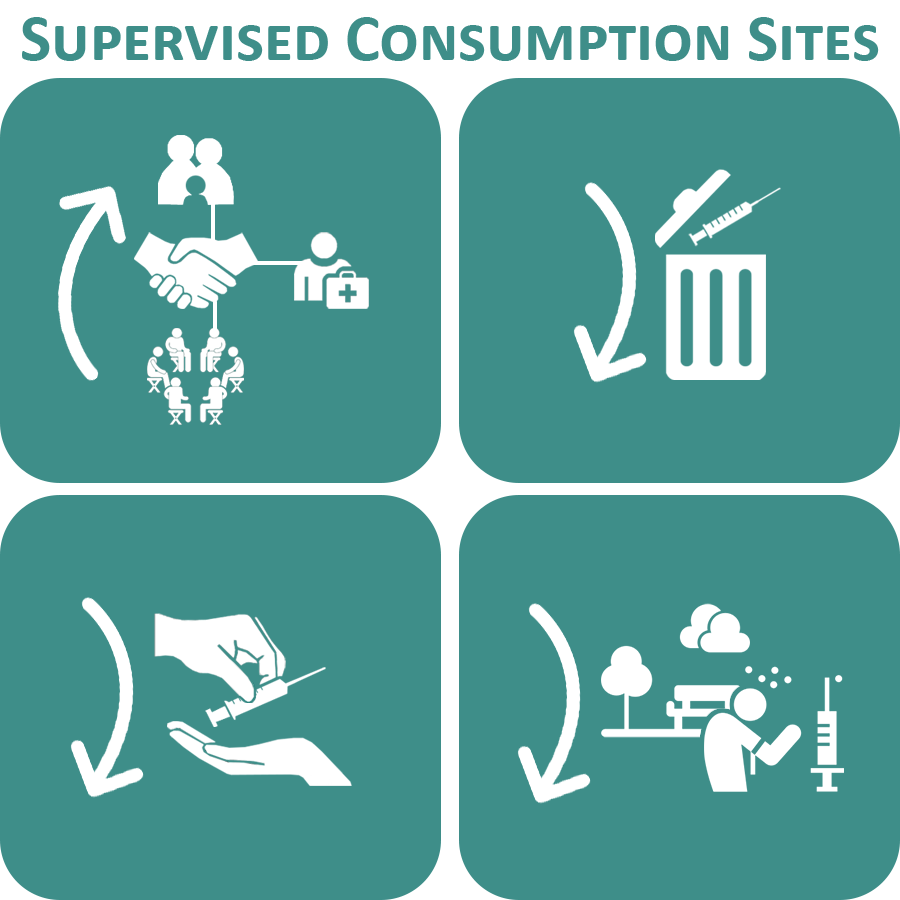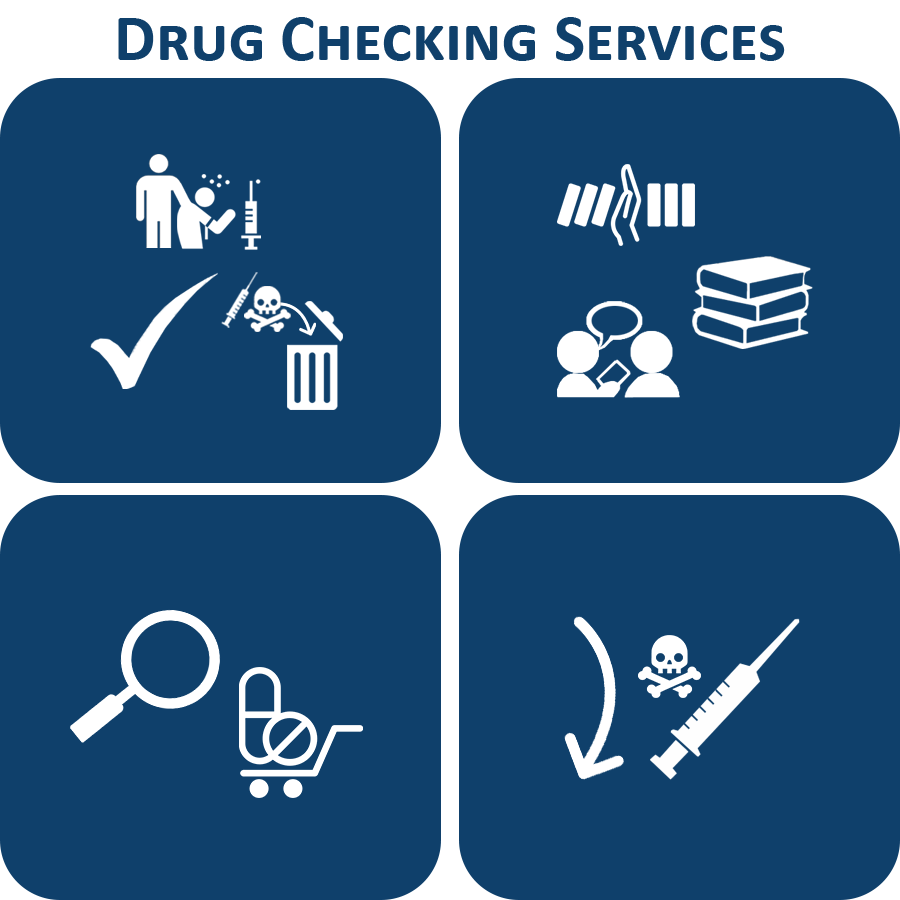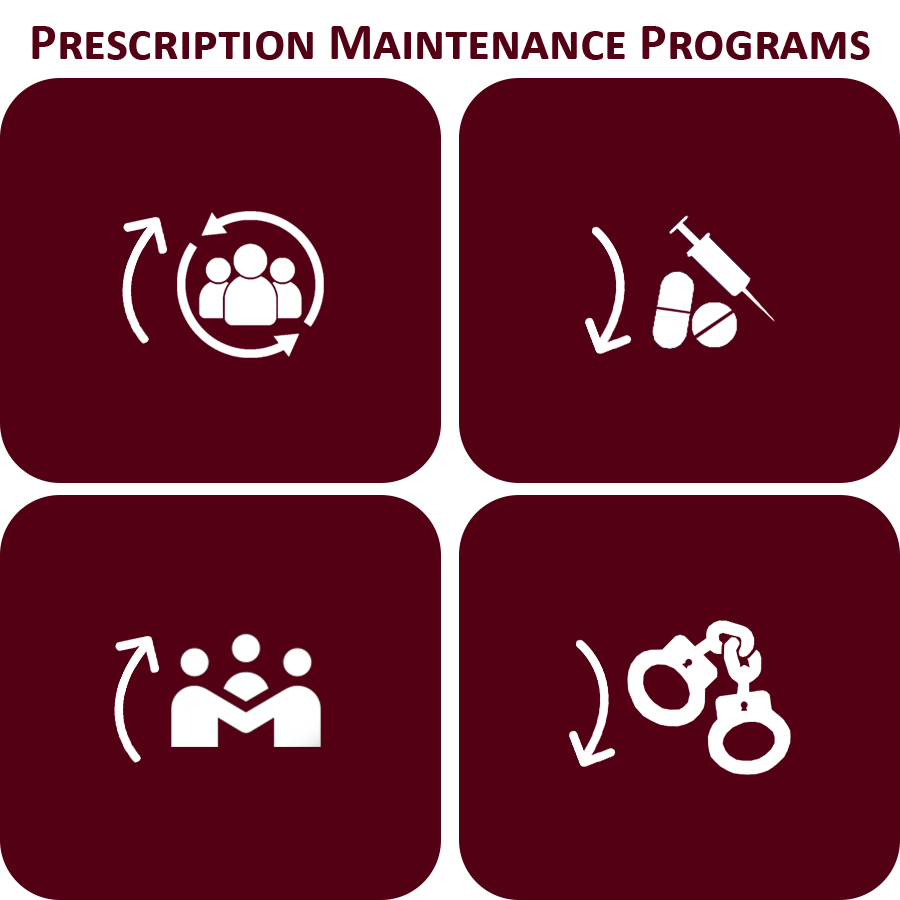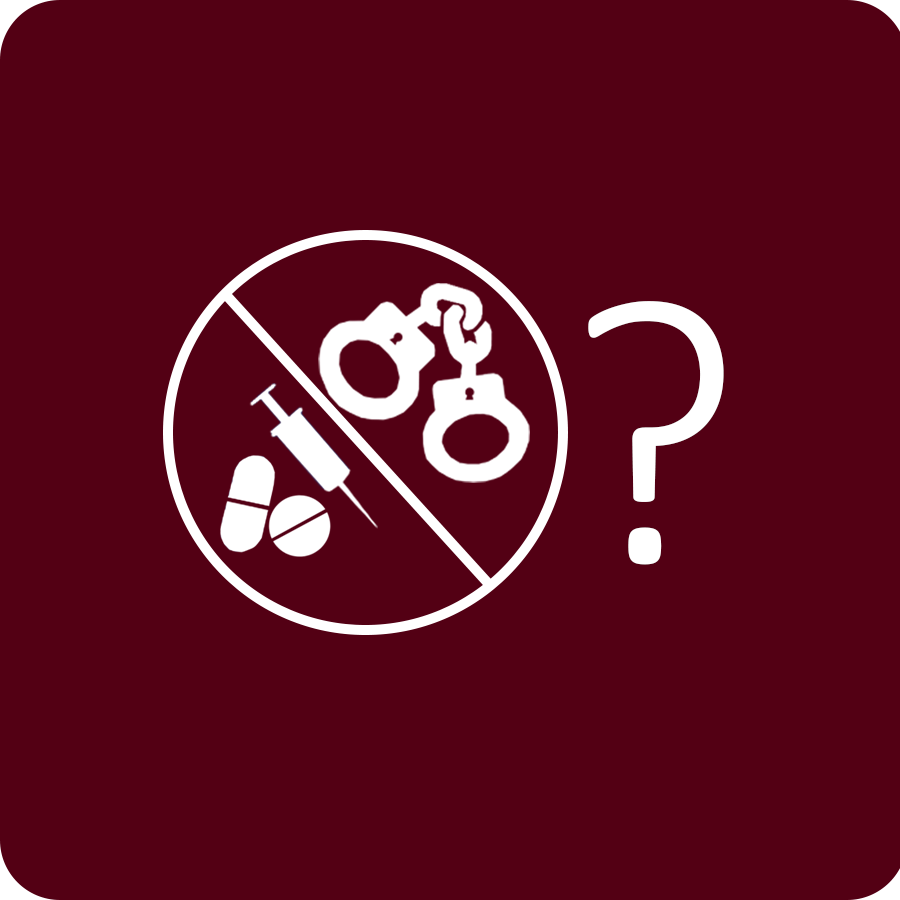By Dr. Leah Phillips
Pros, Cons, and Options
Addiction, like many health issues, is complex. There are multiple reasons why people develop problems with substance use, however, evidence shows that mental illness and trauma are related factors. Canada’s opioid crisis disproportionally impacts people with lower incomes, the unemployed, those with disabilities, and Indigenous people who also contend with systemic racism, trauma, and colonial systems of power and control. As we noted last month, complex problems need complex solutions. Health leaders need to be courageous and tackle these complex issues with creative and innovative thinking. One such idea calls for the decriminalization of illicit drugs…But what does this really mean?
What do we mean by Decriminalization?
Decriminalization means that the personal use and possession of illegal substances would not be dealt with as a criminal action but producing, supplying, and selling these drugs would remain criminal1. A decriminalization approach refers to a continuum of practices that include harm reduction services, police diversion, and national policy approaches. In countries that have used decriminalization, such as Australia, Portugal and Czech Republic, the types of drugs, and the amounts for ‘legal’ possession varies.
Pros of Decriminalization
There are Canadian agencies calling for decriminalization of personal possession of illegal drugs, arguing that criminalizing drug use leads to stigma, marginalization of people who use drugs, and creates an unsafe environment to access harm-reduction and treatment services. Portugal decriminalized illicit drugs in 2001, which lead to a reduction of the number of people arrested for drug related offences and saw an increase in access to treatment2. However, Portugal’s system is not without its flaws.
Cons to Consider
In Portugal, if you are caught possessing a personal usage amount, there are only two options: a large fine (with an offer of treatment) or potential jail time. Given this choice, is it any wonder that treatment rates increased? Also, anything more than what is considered ‘personal usage’ is considered criminal. This means, for example, a person that uses 5 grams of heroin a week can only buy one gram (the legal personal possession amount) each day. To me, this seems like an unreasonably complicated rule. Additionally, Portugal still has an active illegal drug market, and decriminalization has done little to extinguish that.
So, What Other Options Are There?
No matter what we think about decriminalization, does it even matter? In my opinion, we need to keep advocating for the tangible research-based options that we know make a real difference.
The Canadian Centre on Substance Use and Addiction published the report, Decriminalization: Options and Evidence, in 2018. The report provides an overview of the relevant issues and the evidence regarding decriminalization. A list of evidence-based options that would not require full scale decriminalization is provided. The following options are listed in the report3 (CCSA, 2018).
Supervised Consumption Sites
Supervised Consumption Sites (SCS) are basically clean spaces to consume drugs. They include health supervision and emergency intervention options.
Research evidence shows that SCS:
- Increases connections with health and social services, including substance use treatment services
- Decreases drug-related litter
- Decreases high-risk injection practice (e.g., re-using or sharing injection equipment)
- Decreases injection in public

Drug Checking Sites
Drug checking services (already in place throughout Europe) provide an analysis of drugs to reduce the harm of hazardous contaminants, such as fentanyl. The evidence presented on the use of drug checking sites shows that they consistently:
- Influence drug use risk behaviours, such as discarding drugs after unfavorable results, reducing the dose, using with others
- Provide opportunities for brief intervention, education, and referral to services
- Help monitor the local drug supply and inform public health initiatives
- Decrease the presence of contaminated drugs in the local market

Prescription Maintenance Programs
These programs provide medically supervised access to illicit drugs, such a prescribed heroin. The evidence supporting this shows:
- Increased treatment retention for individuals who have not remained in methadone maintenance programs
- Decreased illicit opioid use
- Improved social function (e.g., reduced illegal sources of income, increased family engagement, housing stability)
- Decreased involvement in criminal activity
- Increased frequency of adverse events (i.e., overdose) in comparison with methadone

While full decriminalization may not be an option for Canada right now, there are real and substantial ways we can improve the care we provide to people who use drugs. Although becoming more aware of the stigma experienced by people who use drugs can help to reduce bias in your practice, as health leaders, we can do more. We need to use our voices to advocate for evidence-based initiatives that make a difference and can save lives.
Collaborative Mentorship Network for Chronic Pain and Addiction (CMN) Related Resources: Takeaways from Presentations
Join the CMN for access to all events, recordings, slide decks, and more.

